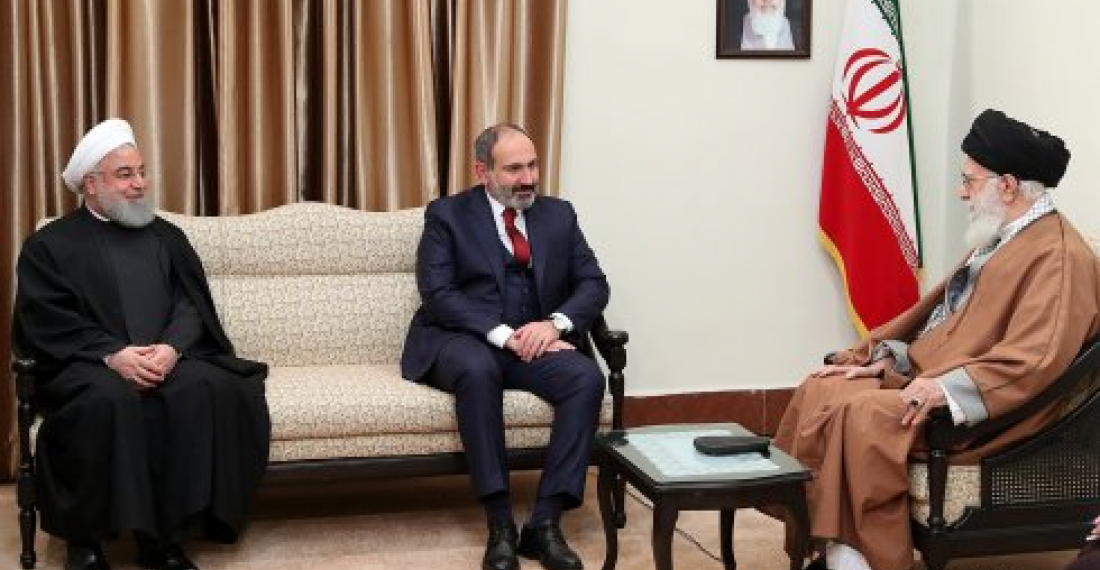Armenian prime minister Nikol Pashinyan paid an official visit to Iran on 27-28 February during which he held discussions with the leadership of the Islamic Republic, and met Armenian communities in Tehran and Isfahan.
Pashinyan's visit came despite US attempts to isolate Tehran.
In a number of speeches in 2018, before and after became prime minister, highlighted good relations with Iran as one of his foreign policy priorities.
Welcoming the Armenian prime minister, the Leader of the Islamic Revolution, Ayatollah Ali Khamenei, called Iran and Armenia as good neighbours who have been enjoying good relationship during history, and said despite opposition by the United States both Iran and Armenia should make their relations "strong, durable and amicable", Tehran Times reported.
Hundreds of members of the large and influential Armenian community in Iran gathered at the Ararat Sports Complex in Tehran on Wednesday to welcome visiting Armenian prime minister Nikol Pashinyan. “Our destiny is no longer in the west, north or south, but in our hands”, Pashinyan told the enthusiastic audience.
source: commonspace.eu







